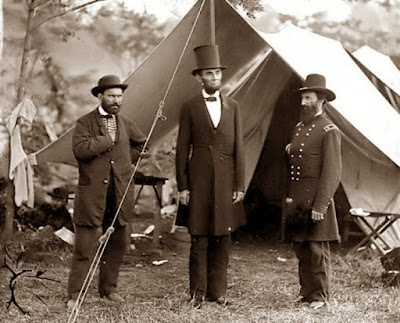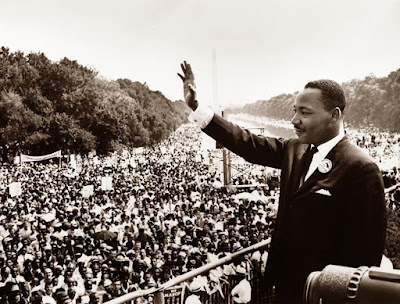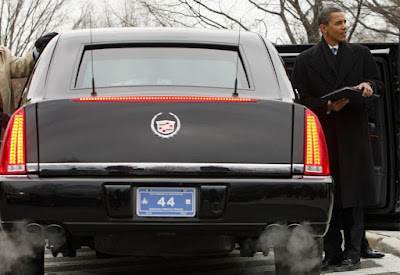 The book International Relations on Film by Robert W. Gregg, explores the ways in which feature films depict the various aspects of international relations, considers the utility of the medium as a vehicle to dramatize issues and events, challenge conventional wisdom, rouse an audience to anger and even revise history and includes a very comprehensive movie list.
The book International Relations on Film by Robert W. Gregg, explores the ways in which feature films depict the various aspects of international relations, considers the utility of the medium as a vehicle to dramatize issues and events, challenge conventional wisdom, rouse an audience to anger and even revise history and includes a very comprehensive movie list.
The Carnegie Council, through their programs, publications, and website,aims to be the world's central address for ethical decision in international affairs. Listed below you can find is the list of films from their website:
OPPRESSION AND CONFLICT, COLONIALISM AND ANTI-COLONIAL MOVEMENTS:
The Battle of Algiers(1966)
Shot in documentary style, this classic about the Algerian struggle for independence from France in the 1950s has become a learning tool both for rebel movements and those fighting them. The film graphically raises issues of what is justified in an assymetrical guerrilla war: Bombs killing innocent civilians? Torture of presumed terrorists?
Gandhi (1982)
This film, winner of eight Academy Awards, covers Ghandi's time in South Africa; the anti-colonial protest campaign that led to India's liberation from Britain; and his assassination after his efforts to restore peace between Hindus and Muslims.
The Home and the World (1984)
The story of a love triangle between a rich, English-educated Bengali, his wife, and a radical nationalist politician,this film dramatizes the political, cultural, and religious differences among Indians under British colonial rule at the turn of the 20th century.
Khartoum (1966)
After a messianic leader and his troops massacred a British-led Egyptian force in Sudan in 1883, the British sent General Gordon to Khartoum to evacuate British and Egyptian citizens. But Gordon disobeyed orders and stayed on to fight. It was his last stand. "A good example of Eurocentrism in filmmaking, as well as a cautionary tale about the perils of imperialism," says Gregg.
The Mission (1986)
In this visually spectacular film, Spanish Jesuits and Portuguese colonizers struggle over a group of Guarani Indians. It tells of clashes between cultures, between faith and greed, a struggle for redemption, and well-meaning efforts that go badly wrong. Of course, the biggest losers are the Guarani.
Rabbit-Proof Fence (2002)
From about 1870-1970, the Australian government forcibly took many aboriginal and mixed-race children from their parents and brought them to boarding schools where they were taught to forget their past. Rabbit-Proof Fence is based on the true story of three girls who escaped from one such school in 1931 and trekked 1,500 miles home. For an article on this topic, see The Stolen Generation.
The Wind That Shakes the Barley (2006)
In 1920s Ireland, two brothers join the IRA, which is fighting a guerrilla war the British. Both sides behave brutally and become brutalized. With the announcement of the Anglo-Irish Treaty in 1922, there is initial rejoicing. But the situation soon turns into a civil war: idealism against pragmatism, brother against brother.
Zulu (1964)
Based on a true story, the film shows the 1879 battle of Rorke's Drift, when around 100 British soldiers stationed at a remote missionary outpost faced an assault from 4-5,000 Zulu warriors. Though seen from the British point of view this is a rousing tale of heroism on both sides, as well as a portrait of individuals, both good and bad, who did the work of imperialism in far-flung parts.
TOTALITARIANISM:
The Lives of Others (2006)
Taking place in East Berlin both pre-and-post the fall of the Berlin Wall, this subtle and gripping film tells the story of a playwright and his actress girlfriend, the Stasi agent assigned to spy on them. It lays bare their secrets, moral choices, and compromises, and the changes they and their society go through.
INSIDE THE WAR ROOM
Why We Fight (Documentary, 2005)
In 1961, Eisenhower warned that the interests of the increasingly powerful "military-industrial complex" might one day determine the direction of U.S. policy. Has that day come to pass?
Dr. Strangelove or: How I Learned to Stop Worrying and Love the Bomb (1964)
In this classic black comedy, an insane U.S. General launches an unauthorized nuclear attack on the USSR, and the U.S. War Room tries to stop him. The film, says Gregg, "provides a veritable clinic on deterrence theory, the problems of command and control, and that high-wire act known as crisis decisionmaking."
Fail-Safe (1964)
Shot in black-and-white documentary style, this nightmarish film is the story of a fictional Cold War nuclear crisis. Due to a technical failure, U.S. nuclear bomber crews get the wrong orders and both the Americans and the Russians try frantically to abort their mission.
Thirteen Days (2000)
A recreation of the 13 tense days of the Cuban Missile Crisis, from the perspective of President Kennedy, his advisors, and military commanders, Thirteen Days portrays the hawks in the military as nearly as much of a threat as the Soviets.
The Fog of War: Eleven Lessons from the Life of Robert S. McNamara (Documentary, 2003)
In a series of interviews, former U.S. Secretary of State McNamara reviews his life, focusing on the difficult decisions he made and the lessons he learned from the failure of the Vietnam war.
COVERT OPERATIONS AND ESPIONAGE:
Breach (2007)
A dramatization of the operation leading to the arrest and prosecution of Robert Hanssen, the FBI agent found guilty in 2001 of spying for the Soviet Union and the Russian Federation, Breach explores one man's motivations for betraying the secrets of his country.
The Good Shepherd (2006)
Following 35 years in the life of a character who joins the CIA at its founding after World War II and becomes a star counter-intelligence agent, The Good Shepherd presents an unromantic picture of a career in espionage.
Missing (1982)
After the kidnapping of U.S. journalist Charles Horman during the 1973 coup in Chile, his wife and father embarked on a desperate search for him. Along the way they discovered evidence suggesting the involvement of the CIA in the coup as well as in Horman's disappearance. Based on a true story, this film urges viewers to consider the dark side of U.S. covert operations abroad.
State of Siege (1973)
In 1970 a USAID official in Uruguay was kidnapped and executed by leftist guerillas. Shortly after his death it was reported that the official had been secretly involved in training the military and police in counterinsurgency tactics, including torture. State of Siege, based loosely on this episode, sympathizes with the guerillas' actions.
Three Days of the Condor (1975)
A thriller about a CIA agent who learns of a secret CIA plot to infiltrate and destabilize the Middle East and who becomes a target as a result, this film illustrates the dangerous consequences, globally and domestically, of corruption in the CIA.
GENOCIDE
Au Revoir les Enfants (1987)
Tragic, autobiographical film about two French boys in a Catholic boarding school during WWII. One of them is secretly Jewish, being hidden by the priests from the Nazis. The film raises issues of courage, greed, and betrayal.
The Diary of Anne Frank (1959)
This film is an adaptation of a play based on the diary of Anne Frank, a 13-year-old Jewish girl who, with her family and others, hides in a crowded attic during the Nazi occupation of Holland. The DVD includes interviews with the actors, historians, and members of the Frank family. Best to read the diary itself (The Diary of a Young Girl) but the film is powerful too.
Ghosts of Rwanda (Documentary, 2004)
This tells the story of the genocide through interviews with UN peacekeepers and other Westerners who were there at the time; Tutsi survivors of the slaughter; confessed Hutu killers; and high-level government officials and diplomats, including Madeleine Albright and Kofi Annan.
The Killing Fields (1984)
The true story of reporter Sidney Schanberg, and his colleague and friend, Cambodian journalist Dith Pran. Like most westerners, Schanberg fled Cambodia after the murderous Khmer Rouge regime seized power in 1975, but Pran could not. For the next four years, Pran labored in rice paddies as the genocide unfolded around him. He finally escaped and reunited with Schanberg.
Hotel Rwanda (2004)
Based on the true story of a Rwandan hotel manager who saved the lives of over 1,200 refugees during the 1993 genocide, this film points blame at the international community and the UN for doing almost nothing to intervene.
Triumph of the Will (1934)
Probably the most famous propaganda movie ever made, this film documents the Nazi Party Congress and in Nuremberg in 1934. Hitler commissioned it and plays a starring role.
THE EXPERIENCE OF WAR
All Quiet on the Western Front (1930)
A moving adaptation of Remarque's antiwar novel that follows a group of young German recruits from idealism to disillusionment in the trenches of World War I.
Apocalypse Now (1979) and(1986)as the two best movies about the Vietnam War (or the American War, as the Vietnamese call it). Based loosely on Heart of Darkness, it follows a U.S. Army captain on a mission to kill a rogue Green Beret colonel, Kurtz, who has deserted the military to lead a band of Cambodian tribesmen in the jungle. The film suggests that there is little difference between Kurtz's murderous escapades and the American soldiers' killing of Vietnamese peasants.
Flags of Our Fathers and Letters from Iwo Jima ( 2006)
These companion films recreate the famous World War II battle on the island of Iwo Jima from the perspective of the Americans (Flags of Our Fathers) and then the Japanese (Letters), who, though vastly outnumbered by American forces, fought for nearly 40 days to defend the island.
Casualties of War (1989)
The story of a five-man patrol in Vietnam that kidnaps and eventually kills a young girl and the one soldier in the group who refuses to participate, Casualties of War, based on an actual event, depicts war as a destroyer of men’s morals.
Gallipoli (1981)
Almost an entire Australian army unit was wiped out by Turkish machine gunners in a futile offensive later known as the Battle of the Nek, which took place during the Gallipoli campaign of World War I. Gallipoli tells the story of two young Australian friends who enlist in the army and wind up fighting side by side in this tragic battle.
Grand Illusion (1938)
In this story of French prisoners of war held by the Germans during WWI, we see friendships by social class that cut across national lines, and a call for humanism rather than patriotism. An anti-war classic, without a single battle scene.
Platoon (1986)
Told from the point of view of a middle-class college student who volunteers to fight in the Vietnam War and whose idealism about the war vanishes, Platoon realistically portrays the chaos and confusion that American soldiers faced in the jungles of Vietnam.
The Bridge on the River Kwai (1957)
In Burma in WWII, British prisoners of war are forced to build a railway bridge for the Japanese. "With an all-male lead cast, themes of heroism, pride, military tradition, hierarchy, and power are masterfully interwoven into a plot that is ambiguous enough to allow for various viewpoints and perspectives," says reviewer Tom Dirk.
MILITARY JUSTICE
Breaker Morant (1979)
In 1902, near the end of the Boer War, "Breaker" Morant and two other Australian soldiers were tried before a British court-martial for killing Boer prisoners of war. They were found guilty, even though their commanders had authorized to carry out such killings. The film raises questions about the accountability of soldiers for their conduct in war and the independence of military courts.
Judgment at Nuremberg (1961)
Based on the Judges' Trial before the U.S. Nuremberg Military Tribunal in 1947, which charged judges under the Nazi regime with war crimes, this film with Spencer Tracy, Marlene Dietrich and a host of other stars raises the question of whether judges and other officials who carry out morally repugnant laws should be held accountable.
Paths of Glory (1957)
Loosely based on the true story of four French soldiers during World War I who were wrongly found guilty of mutiny and executed, Paths of Glory shows the terrible consequences of unprincipled military leadership, both on the battlefield and in the military courts.
The Execution of Private Slovik (1974)- The story of Eddie Slovik, who was executed by the Army in 1945, the only American soldier to be executed for desertion since the Civil War.
NATIONALISM, ETHNIC AND RELIGIOUS CONFLICT
Before the Rain (1994)
Set primarily in Macedonia during the Balkan wars of the 1990s, Before the Rain tells the story of intersecting lives devasted by the escalating violence between Muslims and Christians in Macedonia, where an all-out war fueled by religious and ethnic hatred appeared to be on the horizon.
Bloody Sunday (2002)
Docudrama of the events of January 30, 1972, when the British Army opened fire on unarmed civilians taking part in a civil rights march in Northern Ireland. None of the soldiers was disciplined, and the massacre caused the "Troubles" to swell to a new level of violence.
Cal (1984)
Set amidst the violence and bitterness of 1980s Northern Ireland, this is the doomed love story of Cal, a young Irish Catholic involved with the IRA, and Marcella an Irish-Italian (Catholic) widow whose Protestant husband was killed by the IRA.
SOCIAL AND ENVIRONMENTAL ISSUES
BUSINESS ETHICS
Blood Diamond (2006)
Set in Sierra Leone in 1999 in the midst of a civil war, Blood Diamond draws attention to the responsibility of citizens and businesses in the developed world to ensure that the diamonds they buy have not been used to fund conflicts abroad. It also highlights the plight of child soldiers.
The Constant Gardener (2005)
When a British diplomat stationed in Nairobi investigates his activist wife's murder—supposedly a crime of passion—he uncovers an unsavory conspiracy involving government officials and the pharmaceutical industry. Based on a book by John le Carré, who wrote in the afterword, "By comparison with the reality, my story [is] as tame as a holiday postcard."
The Corporation (2003)
What if corporations were human beings? According to a pyschiatrist in this documentary tracing the history and activities of corporations, they have ''all the characteristics of a prototypical psychopath.''
Rogue Trader (1999)
The true story of Nick Leeson, a Barings Bank trader, who unbeknownst to his employers, was gambling with company money. His staggering losses force Barings into bankruptcy.
Syriana (2005)
Set in the Middle East and inspired by the true story of former CIA agent Robert Baer, this is a political thriller with multiple story lines about the machinations of the global oil industry.
Wall Street (1987)
"Greed is good", says ruthless Wall Street corporate raider Gordon Gecko, in this morality tale of 1980s excess.
ACROSS BORDERS
Clandestins (1997)
This tragic story of six refugees from different countries trying to get to from France to Canada is set almost totally within the confines of a ship's cargo container.
El Norte (1983)
A Guatemalan brother and sister risk death to become illegal immigrants in "El Norte," the United States, but their dreams of a better life do not come true.
Dirty Pretty Things (2002)
Two illegal immigrants in London plumb the depths of the migrant experience, including uncovering the ultimate in exploitation, a ghastly trade in human organs.
Maria Full of Grace (2004)
Maria is 17, pregnant, and the sole breadwinner for her family in a small Columbian village. When loses her job over a request for a bathroom break she becomes a drug mule, flying to New York with 62 pellets of cocaine in her stomach. But once in New York, things go badly wrong. "Based on 1000 true stories," runs the film's tagline.
THE ENVIRONMENT
(These films could equally be classified under Business Ethics.)
An Inconvenient Truth (Documentary, 2006)
Al Gore explains the science of global warming, describes its present-day effects, and forecasts what the future may hold in store. We can reverse this trend, he declares, but we are running out of time.
The China Syndrome (1979)
This fictional thiller about a reporter and cameraman who discover safety coverups at a U.S. nuclear power plant was released just 12 days before the Three-Mile Island nuclear power plant suffered a partial melt-down.
A Civil Action (1998)
Based on a real-life case, a lawyer agrees to represent eight families whose children died from leukemia after two large corporations leaked toxic chemicals into the water supply of Woburn, Massachusetts, even though the case could mean financial and professional suicide for him.
Erin Brockovich (2000)
The true story of Brockovich, a legal clerk who brings a case against a company in California which had contaminated local drinking water.
Read more...
(Photo by David McNew/Getty Images)
(AP Photo/Charles Dharapak)
(Photo by Alex Wong/Getty Images)
(Photo by Alex Wong/Getty Images)
(Photo by Jim Bourg-Pool/Getty Images)
(Andy Cross/The Denver Post)
 "Vertie Hodge, 74, weeps during an Inauguration Day party near Martin Luther King, Jr. Blvd. in Houst"
"Vertie Hodge, 74, weeps during an Inauguration Day party near Martin Luther King, Jr. Blvd. in Houst"(ROBYN BECK/AFP/Getty Images)
(Ozier Muhammad/The New York Times)
(PAUL J. RICHARDS/AFP/Getty Images)
(Andrew Councill/The New York Times)
(AP Photo/Pablo Martinez Monsivais)
(Eric Draper/The White House)































